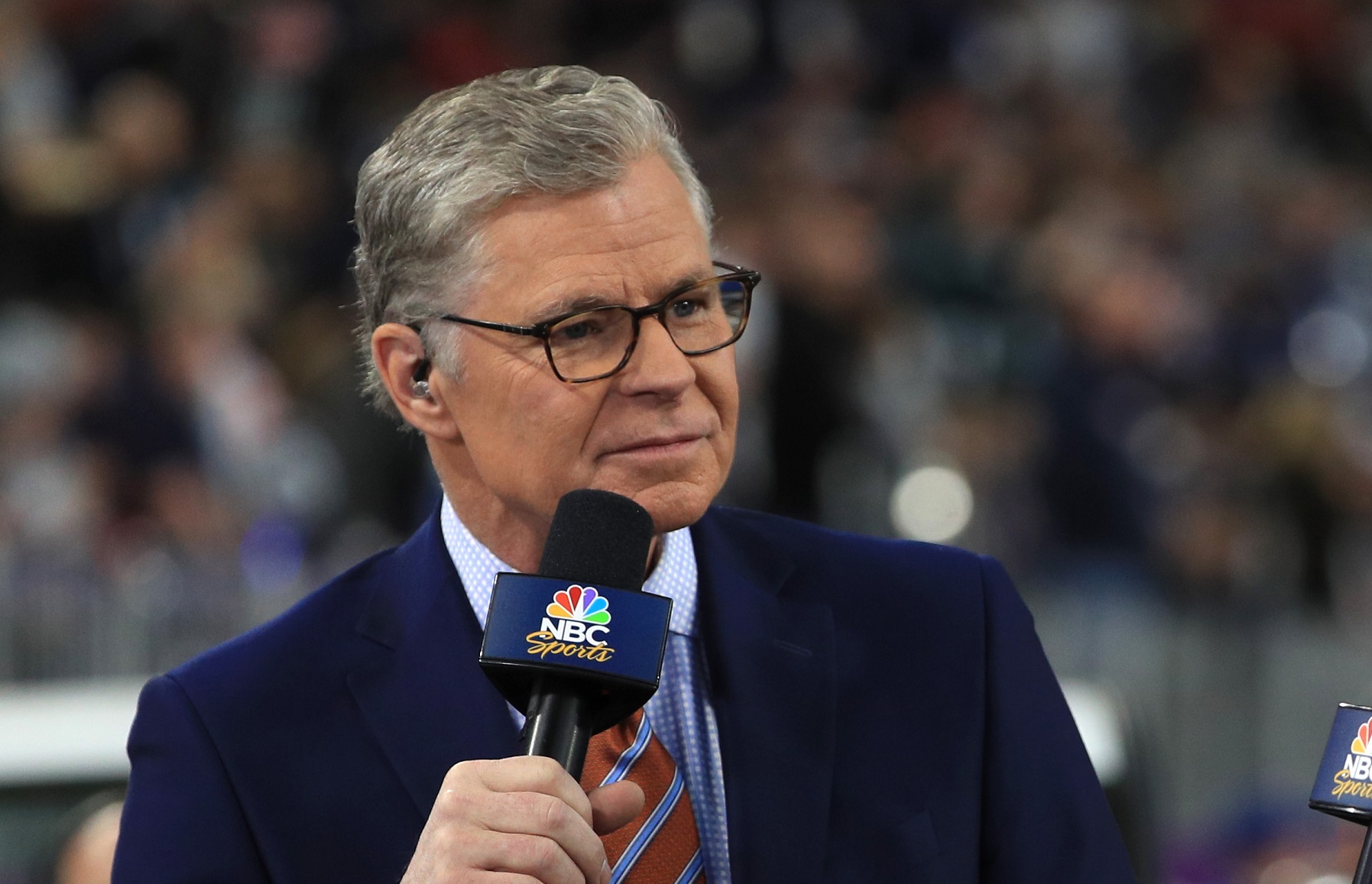Sports
Dan Patrick Had a Surprising Change of Heart Behind Leaving ESPN

Plenty of people have known the feeling of realizing they had stayed in one job for too long and had gone stale. At that point, it becomes a matter of deciding whether to just keep punching the timeclock or starting fresh somewhere else. Dan Patrick took an honest look at himself and decided it was time to leave ESPN.
Leaving was risky, but it proved to be the right move.
Dan Patrick has been a major TV and radio figure
RELATED: Kyler Murray And Dan Patrick’s Other Worst On-Air Interview
Dan Patrick logged one of the longest and most successful careers at ESPN as a SportsCenter anchor, which can be a grinding job because of the night-after-night deadline pressure associated with reporting on games that often end just moments before the show starts.
He lasted there from 1989 to 2006, and his long-running late-night partnership with Keith Olbermann was a favorite of sports fans looking to catch up on the day’s developments after coming home from work or before heading to bed. Both were exquisite writers who could spice up highlight recaps with cultural references and ad-libs.
Patrick also hosted a radio show in his later years at ESPN before leaving to launch his own syndicated radio program that was later picked up as simulcasted TV content. He also moved up a notch on the TV side by signing with NBC in 2008 to co-host Football Night in America on Sundays and also take a studio role in Olympic coverage. He left in 2018 to concentrate on his radio show.
A moment of clarity while on the air
RELATED: ESPN’s Sage Steele Upset Other On-Air Personalities Question Her ‘Blackness’
Dan Patrick didn’t get in on the ground floor at ESPN, which launched on Sept. 7, 1979. However, he arrived at a time when the cable sports giant was at its best, powered not just by its contracts to carry games from top pro and college leagues, but by its on-air personalities. Chris Berman, Stuart Scott, and others were must-watches on SportsCenter. The crew also included the likes of Bob Ley, Mike Tirico, Robyn Roberts, and Linda Cohn.
“We had an unbelievable group of talent there,” Patrick recalled during a recent podcast with Sports Illustrated’s Jimmy Traina. “And I looked up one day, and I’ll never forget, I was doing the 6 o’clock SportsCenter, and it just dawned on me during a commercial break, ‘I’m the last guy here.’”
That realization caused Patrick to begin reflecting upon his career and what his future might be at ESPN. The more he wrestled with it, the more critical Patrick became of himself.
“I stayed three years longer than I should have because I wasn’t getting better. I was there 18 years. For the first 15, it was great. The last three, I don’t know, I wasn’t there, mentally.”
Dan Patrick
Digging deeper, Patrick realized that many of his colleagues had done more than just leave. Keith Olbermann and the others had moved on to new challenges while “I was still searching for that magic on SportsCenter, and it was never going to be there again,” he said, as transcribed by Awful Announcing.
Dan Patrick’s surprising reason for leaving ESPN
RELATED: The Tragic Death of Beloved ESPN Anchor John Saunders
Dan Patrick was going through what would be his final contract negotiation with ESPN. He’d already passed his 50th birthday and was ready to sign a five-year extension at ESPN when Patrick’s wife, Susan, got him thinking about their four children ranging in age from 9 to 15. Committing to the ESPN grind was going to cause Patrick to miss the prime of their childhood lives.
Patrick left the house one morning, resolute and unswerving. He was going to agree to the new contract.
“So I drove up to ESPN, pull in, go in, second floor, sit down in Norby Williamson’s office, and he said ‘What’s it going to be? You going to take it or leave it?’ And at that moment, I thought of my wife telling me this at the breakfast table, that I’m going to miss out, especially not being at home with three daughters.”
Dan Patrick
Patrick turned down the contract; he was now committed to leaving the best job he’d ever had up to that point once his existing deal ended. He knew when he got home that he had made the right choice.
“My kids, everybody’s at the dinner table, and they’re quiet, everybody’s quiet, and my son says, ‘Is this a good thing or a bad thing?’” Patrick recalled. “And I said, ‘It’s a great thing.’ “They started banging on the kitchen table.”











